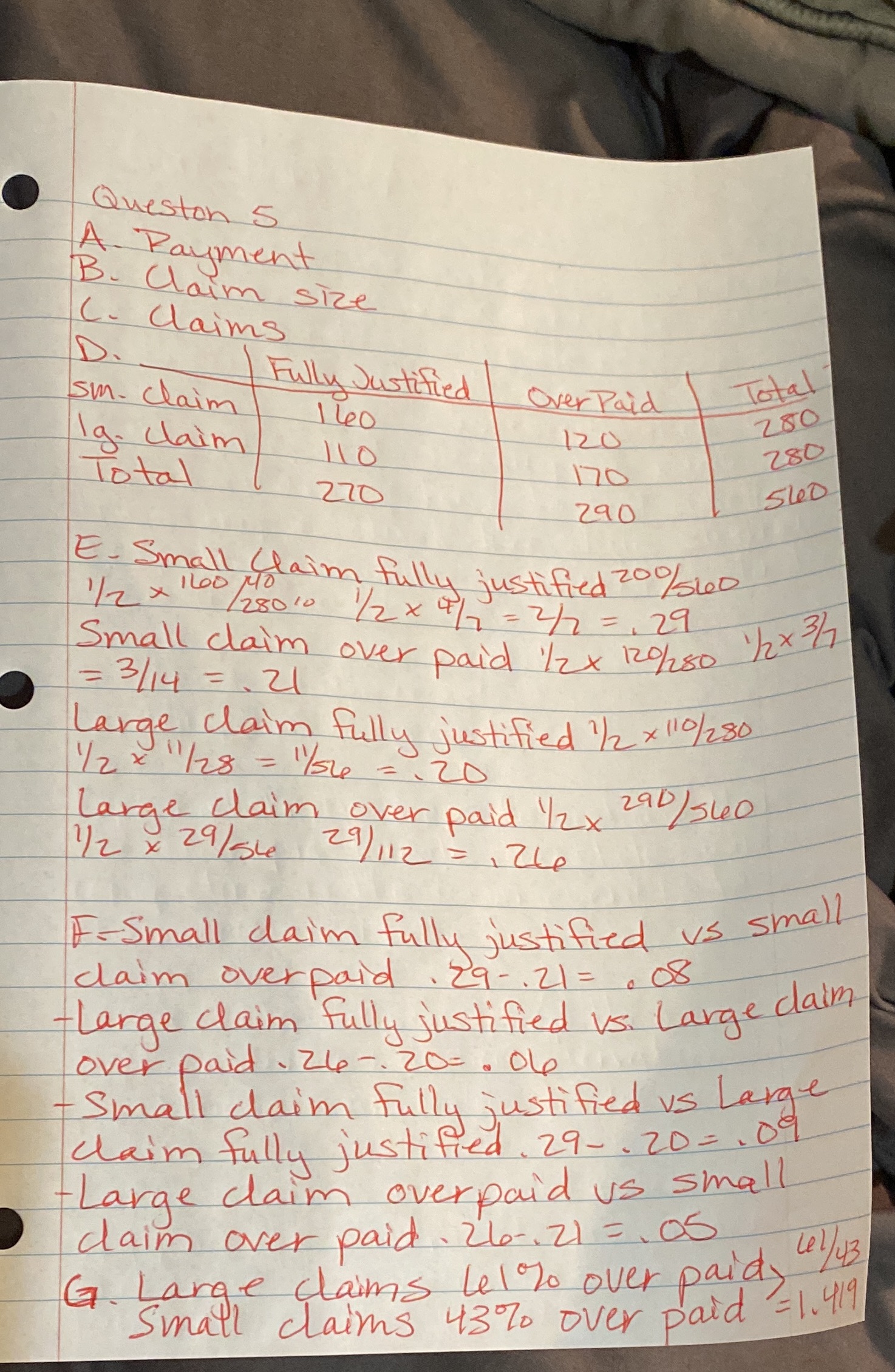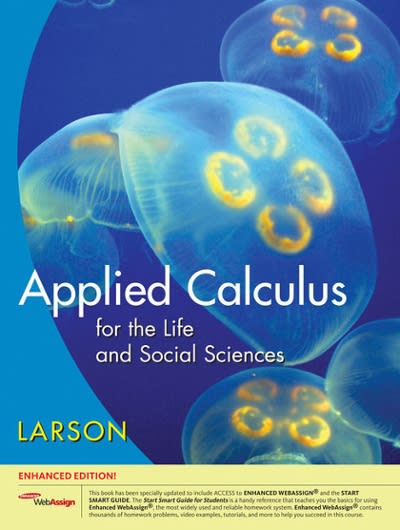Question
Question 5 The U.S. government authorizes private contractors to audit bills paid by Medicare and Medicaid. We want to answer the question, Will larger sized
Question 5 The U.S. government authorizes private contractors to audit bills paid by Medicare and Medicaid. We want to answer the question, "Will larger sized claims have a higher chance of being judged as an overpayment?" a. (2 pts) What is the response variable? ANSWERED b. (2 pts) What is the explanatory variable? ANSWERED c. (2 pts) What are the observational units for this study? ANSWERED The contractor audits a random sample of 560 paid claims and judges each claim to be either fully justified or an overpayment. Among the selected claims 280 were small sized claims and the rest were large sized claims. From those 280 small sized claims, 120 were overpayments and from the large sized claims, 170 were overpayments. d. (6 pts) Complete a two-way table according to the information given above. ANSWERED e. (4 pts) Calculate the corresponding conditional proportions? ANSWERED f. (2 pts) Calculate the value Difference in proportions ANSWERED g. (3 pts) Calculate and interpret the relative risk.ANSWERED Need help with the rest pleaseh. (3 pts) State the null and alternative hypotheses in symbols to answer the researcher's question. i. (2 pts) Are the conditions necessary for the theory-based approach met in this study? Explain. j. (4 pts) Calculate the 95% confidence interval for the difference in proportions (Use formula to manually calculate it and show all your workings for full credit. Do not use applet). k. (2 pts) Interpret the above obtained 95% confidence interval. l. (2 pts) Based on the confidence interval, will you reject your null hypothesis? Why or why not? m. (2 pts) Based on your decision above, state the conclusion that you can arrive at. n. (4 pts) Calculate the standardized statistic based on the given information. (Use formula to manually calculate the value, show all your work for full credits.) o. (2 pts) Calculate the value Difference in proportions. p. (3 pts) Calculate and interpret the relative risk. q. (3 pts) State the null and alternative hypotheses in symbols to answer the researcher's question. r. (2 pts) Are the conditions necessary for the theory-based approach met in this study? Explain. s. (4 pts) Calculate the 95% confidence interval for the difference in proportions (Use formula to manually calculate it and show all your workings for full credit. Do not use applet). t. (2 pts) Interpret the above obtained 95% confidence interval. u. (2 pts) Based on the confidence interval, will you reject your null hypothesis? Why or why not? v. (2 pts) Based on your decision above, state the conclusion that you can arrive at. w. (4 pts) Calculate the standardized statistic based on the given information. (Use formula to manually calculate the value, show all your work for full credits.)

Step by Step Solution
There are 3 Steps involved in it
Step: 1

Get Instant Access to Expert-Tailored Solutions
See step-by-step solutions with expert insights and AI powered tools for academic success
Step: 2

Step: 3

Ace Your Homework with AI
Get the answers you need in no time with our AI-driven, step-by-step assistance
Get Started


